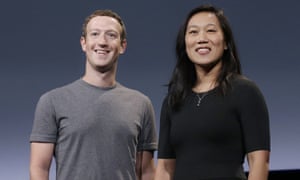Globalisation, as can be seen from the TTIP and Ceta deals, is about protecting big business – against the public. No wonder voters in the US and Europe are turning to populists.
Illustration by Andrzej Krauze
How they frown. How they fulminate. How they threaten. For decades, presidents and prime ministers, policymakers and pundits have told voters there is only one direction of travel: free trade. Now comes Brexit and Donald Trump – and the horrible suspicion that the public won’t buy it any more. This is how an elite project falls apart. And the elites don’t know what to do, apart from keep insisting the public listen.
In Washington last month, you could barely move for wagging fingers as the heads of the IMF, the World Bank and the World Trade Organisation warned that free trade was in mortal danger. In Ottawa last week, Canadian prime minister Justin Trudeau surveyed the hundreds of thousands of Europeans demonstrating against the continent’s treaty with his country and said: “If… Europe is unable to sign a progressive trade agreement with a country like Canada, well, then with whom will Europe think that it can do business in the years to come?”
Their outriders in the press have dropped the pretence of liberal politesse for red-cheeked self-righteousness. The hairy-palmed hordes are coming for our internationalism! As if internationalism were little more than business-class flights and the freedom to structure derivatives across several time zones. The Economist slaps an image of anti-globalisation demonstrators on its cover with the headline: “Why they’re wrong”. Note that use of “they”, with its shadow of the drawbridge being hastily pulled up. Coming soon, perhaps: “Why can’t we get the 99% we deserve?”
I heartily agree that Nigel Farage and Trump are grotesques. But the free-traders peddle their own untruths. They have insisted that black is white, even as the voters beg to differ. In their seminar rooms, their TV studios and their Geneva offices, they have perpetrated the ideological sleight of hand that equates internationalism with free trade, and globalisation with untrammelled corporate power. The result has been misery for workers from Bolton to Baltimore to Bangladesh. But it has also left the six-figure technocrats who supervise our economic system pushing a zombie idea. Because that is what free trade has become: an idea leached of life and meaning but stumbling on for want of any replacement. We have a globalisation for bankers, but not for children fleeing the bombs of Syria. Security for investors but not for workers.
To see how debased the notion of free trade has become, look at the deal between Canada and the EU that is currently being voted through Europe’s parliaments. It’s called the Comprehensive Economic and Trade Agreement (Ceta), and the fact that you can see it at all is largely down to leaks of the documents, which forced the European commission to publish,. That is after the negotiations were conducted for five years in secret, with even the directives kept hidden from the hundreds of millions of citizens affected.
This is no minor technical work. Provided it is passed in time, Ceta will apply to Britain too – and parts of it will affect Britons’ lives even after we’ve “taken back control”. It has been billed as “a backdoor for TTIP”, the Transatlantic Trade and Investment Partnership, which collapsed this summer amid public opposition both in Europe and the US. Like TTIP, Ceta includes the investor-state dispute settlement system – which hands big business the power to sue governments, including for profits they haven’t made yet. A US multinational with an office in Canada (nearly all of them) will be able to sue Britons for bringing in laws that lose them money. This was the mechanism tobacco giant Philip Morris used to sue Australia’s government for bringing in plain packaging. On that occasion, Big Tobacco was unsuccessful – but it took four years of expensive legal battle.
Free trade used to be about tackling protectionism; now it’s about protecting big business – against the public. If populists take a complex situation, offer a simple answer and warn any dissenters of gruesome consequences, then the free-traders are guilty of populism too. With Ceta or TTIP, it goes like this: if this deal goes through, then economies will grow, jobs will appear, and a rising tide will lift all boats, from super-yacht to rubber dinghy. That is pretty much what mainstream politicians of Europe – both left and right – and their officials are saying about the deal with Canada.
In economic history, never mind that the biggest winners – whether the US in the early 1900s or China now – are those who break the free trade rules. Never mind that the actual forecasts for Ceta show the gains will be relatively meagre. Never mind that the studies cited don’t bother to look at who wins and loses, and by how much.
Most of all, ignore their shared assumption that after any deal the affected economies undergo a short, sharp shock before bouncing back. Anyone’s who has lived through the past eight years has heard that one before. After the financial crisis, the Bank of England and Treasury both kept forecasting a return to normal – and they kept getting it wrong. Eight years on, that bounceback hasn’t materialised. British workers are still not paid as much after inflation as they were when Lehman Brothers collapsed.
That assumption’s lack of substance is called a “dirty little secret” by two independent economists, Pierre Kohler and Servaas Storm, in a recent paper scrutinising the likely effects of Ceta. As they say, it presumes that laid-off workers “will rapidly find new jobs” – whatever the industry, however far away the employer. A car engineer can up sticks and turn into a software engineer. And if there aren’t any actual jobs, they can deliver takeaways for Deliveroo.
The assumptions are both laughably far-fetched and, in the cost citizens are expected to bear, disgusting. No wonder the EU would rather there was as little public discussion as possible.
Using a model employed by the UN, Kohler and Storm found that the benefits of Ceta become microscopic next to the costs. For at least the first seven years after the agreement is brought in, unemployment will rise, wages will fall and economies will see their growth rates decline. Governments will lose revenue, and so increase austerity.
The burden will fall hardest on the poorest, the lowest-skilled, older people and those with disabilities. A senior lecturer at Delft University of Technology, Storm summed up for me the consequences: “The weaker your position in an economy, the more strongly you’ll feel the fall-out.” These aren’t people and regions who are left behind: they’ve been chucked off the train by their own governments. This is the settlement free-traders, left and right, are fighting to impose on voters. Is it any wonder the voters keep plumping for alternatives – no matter how reprehensible, how ruinous?
How they frown. How they fulminate. How they threaten. For decades, presidents and prime ministers, policymakers and pundits have told voters there is only one direction of travel: free trade. Now comes Brexit and Donald Trump – and the horrible suspicion that the public won’t buy it any more. This is how an elite project falls apart. And the elites don’t know what to do, apart from keep insisting the public listen.
In Washington last month, you could barely move for wagging fingers as the heads of the IMF, the World Bank and the World Trade Organisation warned that free trade was in mortal danger. In Ottawa last week, Canadian prime minister Justin Trudeau surveyed the hundreds of thousands of Europeans demonstrating against the continent’s treaty with his country and said: “If… Europe is unable to sign a progressive trade agreement with a country like Canada, well, then with whom will Europe think that it can do business in the years to come?”
Their outriders in the press have dropped the pretence of liberal politesse for red-cheeked self-righteousness. The hairy-palmed hordes are coming for our internationalism! As if internationalism were little more than business-class flights and the freedom to structure derivatives across several time zones. The Economist slaps an image of anti-globalisation demonstrators on its cover with the headline: “Why they’re wrong”. Note that use of “they”, with its shadow of the drawbridge being hastily pulled up. Coming soon, perhaps: “Why can’t we get the 99% we deserve?”
I heartily agree that Nigel Farage and Trump are grotesques. But the free-traders peddle their own untruths. They have insisted that black is white, even as the voters beg to differ. In their seminar rooms, their TV studios and their Geneva offices, they have perpetrated the ideological sleight of hand that equates internationalism with free trade, and globalisation with untrammelled corporate power. The result has been misery for workers from Bolton to Baltimore to Bangladesh. But it has also left the six-figure technocrats who supervise our economic system pushing a zombie idea. Because that is what free trade has become: an idea leached of life and meaning but stumbling on for want of any replacement. We have a globalisation for bankers, but not for children fleeing the bombs of Syria. Security for investors but not for workers.
To see how debased the notion of free trade has become, look at the deal between Canada and the EU that is currently being voted through Europe’s parliaments. It’s called the Comprehensive Economic and Trade Agreement (Ceta), and the fact that you can see it at all is largely down to leaks of the documents, which forced the European commission to publish,. That is after the negotiations were conducted for five years in secret, with even the directives kept hidden from the hundreds of millions of citizens affected.
This is no minor technical work. Provided it is passed in time, Ceta will apply to Britain too – and parts of it will affect Britons’ lives even after we’ve “taken back control”. It has been billed as “a backdoor for TTIP”, the Transatlantic Trade and Investment Partnership, which collapsed this summer amid public opposition both in Europe and the US. Like TTIP, Ceta includes the investor-state dispute settlement system – which hands big business the power to sue governments, including for profits they haven’t made yet. A US multinational with an office in Canada (nearly all of them) will be able to sue Britons for bringing in laws that lose them money. This was the mechanism tobacco giant Philip Morris used to sue Australia’s government for bringing in plain packaging. On that occasion, Big Tobacco was unsuccessful – but it took four years of expensive legal battle.
Free trade used to be about tackling protectionism; now it’s about protecting big business – against the public. If populists take a complex situation, offer a simple answer and warn any dissenters of gruesome consequences, then the free-traders are guilty of populism too. With Ceta or TTIP, it goes like this: if this deal goes through, then economies will grow, jobs will appear, and a rising tide will lift all boats, from super-yacht to rubber dinghy. That is pretty much what mainstream politicians of Europe – both left and right – and their officials are saying about the deal with Canada.
In economic history, never mind that the biggest winners – whether the US in the early 1900s or China now – are those who break the free trade rules. Never mind that the actual forecasts for Ceta show the gains will be relatively meagre. Never mind that the studies cited don’t bother to look at who wins and loses, and by how much.
Most of all, ignore their shared assumption that after any deal the affected economies undergo a short, sharp shock before bouncing back. Anyone’s who has lived through the past eight years has heard that one before. After the financial crisis, the Bank of England and Treasury both kept forecasting a return to normal – and they kept getting it wrong. Eight years on, that bounceback hasn’t materialised. British workers are still not paid as much after inflation as they were when Lehman Brothers collapsed.
That assumption’s lack of substance is called a “dirty little secret” by two independent economists, Pierre Kohler and Servaas Storm, in a recent paper scrutinising the likely effects of Ceta. As they say, it presumes that laid-off workers “will rapidly find new jobs” – whatever the industry, however far away the employer. A car engineer can up sticks and turn into a software engineer. And if there aren’t any actual jobs, they can deliver takeaways for Deliveroo.
The assumptions are both laughably far-fetched and, in the cost citizens are expected to bear, disgusting. No wonder the EU would rather there was as little public discussion as possible.
Using a model employed by the UN, Kohler and Storm found that the benefits of Ceta become microscopic next to the costs. For at least the first seven years after the agreement is brought in, unemployment will rise, wages will fall and economies will see their growth rates decline. Governments will lose revenue, and so increase austerity.
The burden will fall hardest on the poorest, the lowest-skilled, older people and those with disabilities. A senior lecturer at Delft University of Technology, Storm summed up for me the consequences: “The weaker your position in an economy, the more strongly you’ll feel the fall-out.” These aren’t people and regions who are left behind: they’ve been chucked off the train by their own governments. This is the settlement free-traders, left and right, are fighting to impose on voters. Is it any wonder the voters keep plumping for alternatives – no matter how reprehensible, how ruinous?



